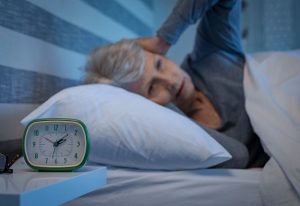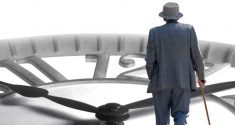It is well established that deep sleep is essential to overall health and well-being, both short-term and long-term. During deep sleep, numerous health-preserving processes take place, including the flushing of toxins from the brain, the repair of tissues and immune system strengthening.
According to University of California, Berkeley researchers, in addition to the connection between sleep and health, there may also be a link between sleep and aging. Their research has allowed them to present a fresh perspective on the generally accepted misconception that as people age, they need less sleep.
Changes in Sleep and Aging
 While there is older research that suggests that older people need less sleep, more recent research reveals this concept to be a bit facile and inaccurate. Simply saying that older people need less sleep because they get less sleep and are still relatively functional during the day, as pointed out by UC Berkeley researchers, misses an important distinction between needing less sleep and getting less sleep. It also misses the importance of the type of sleep a person gets and fails to consider what happens during the stages of sleep that may impact health and aging.
While there is older research that suggests that older people need less sleep, more recent research reveals this concept to be a bit facile and inaccurate. Simply saying that older people need less sleep because they get less sleep and are still relatively functional during the day, as pointed out by UC Berkeley researchers, misses an important distinction between needing less sleep and getting less sleep. It also misses the importance of the type of sleep a person gets and fails to consider what happens during the stages of sleep that may impact health and aging.
When older people routinely get less sleep than they used to, what this means is that they typically are getting less deep, restorative slow-wave sleep. This can occur for a variety of reasons. These reasons can include lifestyle changes that impact the sleep-wake cycle, including reduced sunlight exposures, a decrease in physical activity or exercise, increased need to urinate at night and side effects of prescription medication. However, there are also some deeper age-related changes to sleep timing and patterns, such as a shift toward earlier sleep-wake timing, that can impact how and when a person moves through the sleep stages. Some of these changes can impact deep sleep.
Changes in what the UC Berkeley researchers termed “the signature electrical oscillations of sleep” lead to decreased amplitude and frequency of slow waves – meaning not as slow and not as often. Those decreases lead to a reduction of sleep pressure, a term used to describe the deep need or drive to sleep, contributing to a reduction of time spent in the deep sleep stage.
Another age-related challenge to getting enough deep sleep has to do with changes in the production of neurochemicals, such as the sleep promoting galanin. However, not all older people are equally impacted and not all elder people have sleep difficulties.
Deep Sleep May Help Combat Aging
Many important things happen during deep sleep; things that can impact both aging processes and overall health. During deep sleep, toxins are flushed from the brain, including amyloid-Beta and abnormal types of tau, both associated with Alzheimer’s disease and other types of dementia. Getting enough deep sleep helps protect cognitive functioning, including memory and learning.
Deep sleep also promotes physical health, helping to protect against disease in a variety of ways, including strengthening the immune system. It’s the time that tissue repair and growth take place. Good sleep helps to reduce stress, promotes healthy hormone production — including melatonin and human growth hormone — and helps to reduce obesity risk. All of these things are critical to slowing the aging process and maintaining a youthful vigor.
Improve Your Deep Sleep
The key to improving your deep sleep at any age is to control the factors that are within your ability to control. When it comes to sleep and aging, you may not be able to readily seize control of your brain’s electrical oscillations or brainwaves – though there is some evidence that meditation can help with that – nor easily control your neurochemical production, but there are plenty of other things you can do to improve your deep sleep.
Establish regular times for going to bed and for getting up. Stick to that schedule every day, including days off from work or school. Create a bedtime routine that helps you to shift away the day’s stress in order to relax and ease yourself into a good night’s sleep. That routine may include a warm bath, some meditation or perhaps a chapter or two of a book. Make that a real paper and ink book, though, because your mobile phone, tablet and computer emit blue light that can suppress melatonin production and delay sleep. Melatonin is produced after dark, so avoid bright lights in the evening and sleep in a dark room. If city lights make that difficult, use blackout curtains or an eye mask.

Sleeping Pills Can’t Substitute for Natural Sleep
UC Berkeley professor of psychology and neuroscience Matthew Walker explains that sleeping pills only sedate the mind, noting that they do not produce a state comparable to natural sleep. Citing the American College of Physicians, he said they should not be the first thing you try to resolve a sleep issue. Lifestyle changes are a better choice. A melatonin supplement used correctly can help while developing better sleep-promoting habits.







